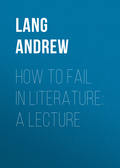
Lang Andrew
The Violet Fairy Book
Once on board ship, she was so busy turning over all the precious things stored there, that she never knew that the sails were spread, and that they were flying along with the wind behind them; and when she did know, she rejoiced in her heart, though she pretended to weep and lament at being carried captive a second time. Thus they arrived at the court of the emperor.
They were just about to land, when the mother of the genius stood before them. She had learnt that Iliane had fled from her prison in company with a merchant, and, as her son was absent, had come herself in pursuit. Striding over the blue waters, hopping from wave to wave, one foot reaching to heaven, and the other planted in the foam, she was close at their heels, breathing fire and flame, when they stepped on shore from the ship. One glance told Iliane who the horrible old woman was, and she whispered hastily to her companion. Without saying a word, the princess swung her into Sunlight’s saddle, and leaping up behind her, they were off like a flash.
It was not till they drew near the town that the princess stooped and asked Sunlight what they should do. ‘Put your hand into my left ear,’ said he, ‘and take out a sharp stone, which you must throw behind you.’
The princess did as she was told, and a huge mountain sprang up behind them. The mother of the genius began to climb up it, and though they galloped quickly, she was quicker still.
They heard her coming, faster, faster; and again the princess stooped to ask what was to be done now. ‘Put your hand into my right ear,’ said the horse, ‘and throw the brush you will find there behind you.’ The princess did so, and a great forest sprang up behind them, and, so thick were its leaves, that even a wren could not get through. But the old woman seized hold of the branches and flung herself like a monkey from one to the others, and always she drew nearer – always, always – till their hair was singed by the flames of her mouth.
Then, in despair, the princess again bent down and asked if there was nothing more to be done, and Sunlight replied ‘Quick, quick, take off the betrothal ring on the finger of Iliane and throw it behind you.’
This time there sprang up a great tower of stone, smooth as ivory, hard as steel, which reached up to heaven itself. And the mother of the genius gave a howl of rage, knowing that she could neither climb it nor get through it. But she was not beaten yet, and gathering herself together, she made a prodigious leap, which landed her on the top of the tower, right in the middle of Iliane’s ring which lay there, and held her tight. Only her claws could be seen grasping the battlements.
All that could be done the old witch did; but the fire that poured from her mouth never reached the fugitives, though it laid waste the country a hundred miles round the tower, like the flames of a volcano. Then, with one last effort to free herself, her hands gave way, and, falling down to the bottom of the tower, she was broken in pieces.
When the flying princess saw what had happened she rode back to the spot, as Sunlight counselled her, and placed her finger on the top of the tower, which was gradually shrinking into the earth. In an instant the tower had vanished as if it had never been, and in its place was the finger of the princess with a ring round it.
The emperor received Iliane with all the respect that was due to her, and fell in love at first sight besides.
But this did not seem to please Iliane, whose face was sad as she walked about the palace or gardens, wondering how it was that, while other girls did as they liked, she was always in the power of someone whom she hated.
So when the emperor asked her to share his throne Iliane answered:
‘Noble Sovereign, I may not think of marriage till my stud of horses has been brought me, with their trappings all complete.’
When he heard this, the emperor once more sent for Fet-Fruners, and said:
‘Fet-Fruners, fetch me instantly the stud of mares, with their trappings all complete. If not, your head shall pay the forfeit.’
‘Mighty Emperor, I kiss your hands! I have but just returned from doing your bidding, and, behold, you send me on another mission, and stake my head on its fulfilment, when your court is full of valiant young men, pining to win their spurs. They say you are a just man; then why not entrust this quest to one of them? Where am I to seek these mares that I am to bring you?’
‘How do I know? They may be anywhere in heaven or earth; but, wherever they are, you will have to find them.’
The princess bowed and went to consult Sunlight. He listened while she told her tale, and then said:
‘Fetch quickly nine buffalo skins; smear them well with tar, and lay them on my back. Do not fear; you will succeed in this also; but, in the end, the emperor’s desires will be his undoing.’
The buffalo skins were soon got, and the princess started off with Sunlight. The way was long and difficult, but at length they reached the place where the mares were grazing. Here the genius who had carried off Iliane was wandering about, trying to discover how to capture them, all the while believing that Iliane was safe in the palace where he had left her.
As soon as she caught sight of him, the princess went up and told him that Iliane had escaped, and that his mother, in her efforts to recapture her, had died of rage. At this news a blind fury took possession of the genius, and he rushed madly upon the princess, who awaited his onslaught with perfect calmness. As he came on, with his sabre lifted high in the air, Sunlight bounded right over his head, so that the sword fell harmless. And when in her turn the princess prepared to strike, the horse sank upon his knees, so that the blade pierced the genius’s thigh.
The fight was so fierce that it seemed as if the earth would give way under them, and for twenty miles round the beasts in the forests fled to their caves for shelter. At last, when her strength was almost gone, the genius lowered his sword for an instant. The princess saw her chance, and, with one swoop of her arm, severed her enemy’s head from his body. Still trembling from the long struggle, she turned away, and went to the meadow where the stud were feeding.
By the advice of Sunlight, she took care not to let them see her, and climbed a thick tree, where she could see and hear without being seen herself. Then he neighed, and the mares came galloping up, eager to see the new comer – all but one horse, who did not like strangers, and thought they were very well as they were. As Sunlight stood his ground, well pleased with the attention paid him, this sulky creature suddenly advanced to the charge, and bit so violently that had it not been for the nine buffalo skins Sunlight’s last moment would have come. When the fight was ended, the buffalo skins were in ribbons, and the beaten animal writhing with pain on the grass.
Nothing now remained to be done but to drive the whole stud to the emperor’s court. So the princess came down from the tree and mounted Sunlight, while the stud followed meekly after, the wounded horse bringing up the rear. On reaching the palace, she drove them into a yard, and went to inform the emperor of her arrival.
The news was told at once to Iliane, who ran down directly and called them to her one by one, each mare by its name. And at the first sight of her the wounded animal shook itself quickly, and in a moment its wounds were healed, and there was not even a mark on its glossy skin.
By this time the emperor, on hearing where she was, joined her in the yard, and at her request ordered the mares to be milked, so that both he and she might bathe in the milk and keep young for ever. But they would suffer no one to come near them, and the princess was commanded to perform this service also.
At this, the heart of the girl swelled within her. The hardest tasks were always given to her, and long before the two years were up, she would be worn out and useless. But while these thoughts passed through her mind, a fearful rain fell, such as no man remembered before, and rose till the mares were standing up to their knees in water. Then as suddenly it stopped, and, behold! the water was ice, which held the animals firmly in its grasp. And the princess’s heart grew light again, and she sat down gaily to milk them, as if she had done it every morning of her life.
The love of the emperor for Iliane waxed greater day by day, but she paid no heed to him, and always had an excuse ready to put off their marriage. At length, when she had come to the end of everything she could think of, she said to him one day: ‘Grant me, Sire, just one request more, and then I will really marry you; for you have waited patiently this long time.’
‘My beautiful dove,’ replied the emperor, ‘both I and all I possess are yours, so ask your will, and you shall have it.’
‘Get me, then,’ she said, ‘a flask of the holy water that is kept in a little church beyond the river Jordan, and I will be your wife.’
Then the emperor ordered Fet-Fruners to ride without delay to the river Jordan, and to bring back, at whatever cost, the holy water for Iliane.
‘This, my mistress,’ said Sunlight, when she was saddling him, ‘is the last and most difficult of your tasks. But fear nothing, for the hour of the emperor has struck.’
So they started; and the horse, who was not a wizard for nothing, told the princess exactly where she was to look for the holy water.
‘It stands,’ he said, ‘on the altar of a little church, and is guarded by a troop of nuns. They never sleep, night or day, but every now and then a hermit comes to visit them, and from him they learn certain things it is needful for them to know. When this happens, only one of the nuns remains on guard at a time, and if we are lucky enough to hit upon this moment, we may get hold of the vase at once; if not, we shall have to wait the arrival of the hermit, however long it may be; for there is no other means of obtaining the holy water.’
They came in sight of the church beyond the Jordan, and, to their great joy, beheld the hermit just arriving at the door. They could hear him calling the nuns around him, and saw them settle themselves under a tree, with the hermit in their midst – all but one, who remained on guard, as was the custom.
The hermit had a great deal to say, and the day was very hot, so the nun, tired of sitting by herself, lay down right across the threshold, and fell sound asleep.
Then Sunlight told the princess what she was to do, and the girl stepped softly over the sleeping nun, and crept like a cat along the dark aisle, feeling the wall with her fingers, lest she should fall over something and ruin it all by a noise. But she reached the altar in safety, and found the vase of holy water standing on it. This she thrust into her dress, and went back with the same care as she came. With a bound she was in the saddle, and seizing the reins bade Sunlight take her home as fast as his legs could carry him.
The sound of the flying hoofs aroused the nun, who understood instantly that the precious treasure was stolen, and her shrieks were so loud and piercing that all the rest came flying to see what was the matter. The hermit followed at their heels, but seeing it was impossible to overtake the thief, he fell on his knees and called his most deadly curse down on her head, praying that if the thief was a man, he might become a woman; and if she was a woman, that she might become a man. In either case he thought that the punishment would be severe.
But punishments are things about which people do not always agree, and when the princess suddenly felt she was really the man she had pretended to be, she was delighted, and if the hermit had only been within reach she would have thanked him from her heart.
By the time she reached the emperor’s court, Fet-Fruners looked a young man all over in the eyes of everyone; and even the mother of the genius would now have had her doubts set at rest. He drew forth the vase from his tunic and held it up to the emperor, saying: ‘Mighty Sovereign, all hail! I have fulfilled this task also, and I hope it is the last you have for me; let another now take his turn.’
‘I am content, Fet-Fruners,’ replied the emperor, ‘and when I am dead it is you who will sit upon my throne; for I have yet no son to come after me. But if one is given me, and my dearest wish is accomplished, then you shall be his right hand, and guide him with your counsels.’
But though the emperor was satisfied, Iliane was not, and she determined to revenge herself on the emperor for the dangers which he had caused Fet-Fruners to run. And as for the vase of holy water, she thought that, in common politeness, her suitor ought to have fetched it himself, which he could have done without any risk at all.
So she ordered the great bath to be filled with the milk of her mares, and begged the emperor to clothe himself in white robes, and enter the bath with her, an invitation he accepted with joy. Then, when both were standing with the milk reaching to their necks, she sent for the horse which had fought Sunlight, and made a secret sign to him. The horse understood what he was to do, and from one nostril he breathed fresh air over Iliane, and from the other, he snorted a burning wind which shrivelled up the emperor where he stood, leaving only a little heap of ashes.
His strange death, which no one could explain, made a great sensation throughout the country, and the funeral his people gave him was the most splendid ever known. When it was over, Iliane summoned Fet-Fruners before her, and addressed him thus:
‘Fet-Fruners! it is you who brought me and have saved my life, and obeyed my wishes. It is you who gave me back my stud; you who killed the genius, and the old witch his mother; you who brought me the holy water. And you, and none other, shall be my husband.’
‘Yes, I will marry you,’ said the young man, with a voice almost as soft as when he was a princess. ‘But know that in OUR house, it will be the cock who sings and not the hen!’
(From Sept Contes Roumains, Jules Brun and Leo Bachelin.)
THE STORY OF HALFMAN
In a certain town there lived a judge who was married but had no children. One day he was standing lost in thought before his house, when an old man passed by.
‘What is the matter, sir, said he, ‘you look troubled?’
‘Oh, leave me alone, my good man!’
‘But what is it?’ persisted the other.
‘Well, I am successful in my profession and a person of importance, but I care nothing for it all, as I have no children.’
Then the old man said, ‘Here are twelve apples. If your wife eats them, she will have twelve sons.’
The judge thanked him joyfully as he took the apples, and went to seek his wife. ‘Eat these apples at once,’ he cried, ‘and you will have twelve sons.’
So she sat down and ate eleven of them, but just as she was in the middle of the twelfth her sister came in, and she gave her the half that was left.
The eleven sons came into the world, strong and handsome boys; but when the twelfth was born, there was only half of him.
By-and-by they all grew into men, and one day they told their father it was high time he found wives for them. ‘I have a brother,’ he answered, ‘who lives away in the East, and he has twelve daughters; go and marry them.’ So the twelve sons saddled their horses and rode for twelve days, till they met an old woman.
‘Good greeting to you, young men!’ said she, ‘we have waited long for you, your uncle and I. The girls have become women, and are sought, in marriage by many, but I knew you would come one day, and I have kept them for you. Follow me into my house.’
And the twelve brothers followed her gladly, and their father’s brother stood at the door, and gave them meat and drink. But at night, when every one was asleep, Halfman crept softly to his brothers, and said to them, ‘Listen, all of you! This man is no uncle of ours, but an ogre.’
‘Nonsense; of course he is our uncle,’ answered they.
‘Well, this very night you will see!’ said Halfman. And he did not go to bed, but hid himself and watched.
Now in a little while he saw the wife of the ogre steal into the room on tiptoe and spread a red cloth over the brothers and then go and cover her daughters with a white cloth. After that she lay down and was soon snoring loudly. When Halfman was quite sure she was sound asleep, he took the red cloth from his brothers and put it on the girls, and laid their white cloth over his brothers. Next he drew their scarlet caps from their heads and exchanged them for the veils which the ogre’s daughters were wearing. This was hardly done when he heard steps coming along the floor, so he hid himself quickly in the folds of a curtain. There was only half of him!
The ogress came slowly and gently along, stretching out her hands before her, so that she might not fall against anything unawares, for she had only a tiny lantern slung at her waist, which did not give much light. And when she reached the place where the sisters were lying, she stooped down and held a corner of the cloth up to the lantern. Yes! it certainly was red! Still, to make sure that there was no mistake, she passed her hands lightly over their heads, and felt the caps that covered them. Then she was quite certain the brothers lay sleeping before her, and began to kill them one by one. And Halfman whispered to his brothers, ‘Get up and run for your lives, as the ogress is killing her daughters.’ The brothers needed no second bidding, and in a moment were out of the house.
By this time the ogress had slain all her daughters but one, who awoke suddenly and saw what had happened. ‘Mother, what are you doing?’ cried she. ‘Do you know that you have killed my sisters?’
‘Oh, woe is me!’ wailed the ogress. ‘Halfman has outwitted me after all!’ And she turned to wreak vengeance on him, but he and his brothers were far away.
They rode all day till they got to the town where their real uncle lived, and inquired the way to his house.
‘Why have you been so long in coming?’ asked he, when they had found him.
‘Oh, dear uncle, we were very nearly not coming at all!’ replied they. ‘We fell in with an ogress who took us home and would have killed us if it had not been for Halfman. He knew what was in her mind and saved us, and here we are. Now give us each a daughter to wife, and let us return whence we came.’
‘Take them!’ said the uncle; ‘the eldest for the eldest, the second for the second, and so on to the youngest.’
But the wife of Halfman was the prettiest of them all, and the other brothers were jealous and said to each other: ‘What, is he who is only half a man to get the best? Let us put him to death and give his wife to our eldest brother!’ And they waited for a chance.
After they had all ridden, in company with their brides, for some distance, they arrived at a brook, and one of them asked, ‘Now, who will go and fetch water from the brook?’
‘Halfman is the youngest,’ said the elder brother, ‘he must go.’
So Halfman got down and filled a skin with water, and they drew it up by a rope and drank. When they had done drinking, Halfman, who was standing in the middle of the stream, called out: ‘Throw me the rope and draw me up, for I cannot get out alone.’ And the brothers threw him a rope to draw him up the steep bank; but when he was half-way up they cut the rope, and he fell back into the stream. Then the brothers rode away as fast as they could, with his bride.
Halfman sank down under the water from the force of the fall, but before he touched the bottom a fish came and said to him, ‘Fear nothing, Halfman; I will help you.’ And the fish guided him to a shallow place, so that he scrambled out. On the way it said to him, ‘Do you understand what your brothers, whom you saved from death, have done to you?’
‘Yes; but what am I to do?’ asked Halfman.
‘Take one of my scales,’ said the fish, ‘and when you find yourself in danger, throw it in the fire. Then I will appear before you.’
‘Thank you,’ said Halfman, and went his way, while the fish swam back to its home.
The country was strange to Halfman, and he wandered about without knowing where he was going, till he suddenly found the ogress standing before him. ‘Ah, Halfman, have I got you at last? You killed my daughters and helped your brothers to escape. What do you think I shall do with you?’
‘Whatever you like!’ said Halfman.
‘Come into my house, then,’ said the ogress, and he followed her.
‘Look here!’ she called to her husband, ‘I have got hold of Halfman. I am going to roast him, so be quick and make up the fire!’
So the ogre brought wood, and heaped it up till the flames roared up the chimney. Then he turned to his wife and said: ‘It is all ready, let us put him on!’
‘What is the hurry, my good ogre?’ asked Halfman. ‘You have me in your power, and I cannot escape. I am so thin now, I shall hardly make one mouthful. Better fatten me up; you will enjoy me much more.’
‘That is a very sensible remark,’ replied the ogre; ‘but what fattens you quickest?’
‘Butter, meat, and red wine,’ answered Halfman.
‘Very good; we will lock you into this room, and here you shall stay till you are ready for eating.’
So Halfman was locked into the room, and the ogre and his wife brought him his food. At the end of three months he said to his gaolers: ‘Now I have got quite fat; take me out, and kill me.’
‘Get out, then!’ said the ogre.
‘But,’ went on Halfman, ‘you and your wife had better go to invite your friends to the feast, and your daughter can stay in the house and look after me!’
‘Yes, that is a good idea,’ answered they.
‘You had better bring the wood in here,’ continued Halfman, ‘and I will split it up small, so that there may be no delay in cooking me.’
So the ogress gave Halfman a pile of wood and an axe, and then set out with her husband, leaving Halfman and her daughter busy in the house.
After he had chopped for a little while he called to the girl, ‘Come and help me, or else I shan’t have it all ready when your mother gets back.’
‘All right,’ said she, and held a billet of wood for him to chop.
But he raised his axe and cut off her head, and ran away like the wind. By-and-by the ogre and his wife returned and found their daughter lying without her head, and they began to cry and sob, saying, ‘This is Halfman’s work, why did we listen to him?’ But Halfman was far away.
When he escaped from the house he ran on straight before him for some time, looking for a safe shelter, as he knew that the ogre’s legs were much longer than his, and that it was his only chance. At last he saw an iron tower which he climbed up. Soon the ogre appeared, looking right and left lest his prey should be sheltering behind a rock or tree, but he did not know Halfman was so near till he heard his voice calling, ‘Come up! come up! you will find me here!’
‘But how can I come up?’ said the ogre, ‘I see no door, and I could not possibly climb that tower.’
‘Oh, there is no door,’ replied Halfman.
‘Then how did you climb up?’
‘A fish carried me on his back.’
‘And what am I to do?’
‘You must go and fetch all your relations, and tell them to bring plenty of sticks; then you must light a fire, and let it burn till the tower becomes red hot. After that you can easily throw it down.’
‘Very good,’ said the ogre, and he went round to every relation he had, and told them to collect wood and bring it to the tower where Halfman was. The men did as they were ordered, and soon the tower was glowing like coral, but when they flung themselves against it to overthrow it, they caught themselves on fire and were burnt to death. And overhead sat Halfman, laughing heartily. But the ogre’s wife was still alive, for she had taken no part in kindling the fire.
‘Oh,’ she shrieked with rage, ‘you have killed my daughters and my husband, and all the men belonging to me; how can I get at you to avenge myself?’
‘Oh, that is easy enough,’ said Halfman. ‘I will let down a rope, and if you tie it tightly round you, I will draw it up.’
‘All right,’ returned the ogress, fastening the rope which Halfman let down. ‘Now pull me up.’
‘Are you sure it is secure?’
‘Yes, quite sure.’
‘Don’t be afraid.’
‘Oh, I am not afraid at all!’
So Halfman slowly drew her up, and when she was near the top he let go the rope, and she fell down and broke her neck. Then Halfman heaved a great sigh and said, ‘That was hard work; the rope has hurt my hands badly, but now I am rid of her for ever.’
So Halfman came down from the tower, and went on, till he got to a desert place, and as he was very tired, he lay down to sleep. While it was still dark, an ogress passed by, and she woke him and said, ‘Halfman, to-morrow your brother is to marry your wife.’
‘Oh, how can I stop it?’ asked he. ‘Will you help me?’
‘Yes, I will,’ replied the ogress.
‘Thank you, thank you!’ cried Halfman, kissing her on the forehead. ‘My wife is dearer to me than anything else in the world, and it is not my brother’s fault that I am not dead long ago.’
‘Very well, I will rid you of him,’ said the ogress, ‘but only on one condition. If a boy is born to you, you must give him to me!’
‘Oh, anything,’ answered Halfman, ‘as long as you deliver me from my brother, and get me my wife.’
‘Mount on my back, then, and in a quarter of an hour we shall be there.’
The ogress was as good as her word, and in a few minutes they arrived at the outskirts of the town where Halfman and his brothers lived. Here she left him, while she went into the town itself, and found the wedding guests just leaving the brother’s house. Unnoticed by anyone, the ogress crept into a curtain, changing herself into a scorpion, and when the brother was going to get into bed, she stung him behind the ear, so that he fell dead where he stood. Then she returned to Halfman and told him to go and claim his bride. He jumped up hastily from his seat, and took the road to his father’s house. As he drew near he heard sounds of weeping and lamentations, and he said to a man he met: ‘What is the matter?’
‘The judge’s eldest son was married yesterday, and died suddenly before night.’
‘Well,’ thought Halfman, ‘my conscience is clear anyway, for it is quite plain he coveted my wife, and that is why he tried to drown me.’ He went at once to his father’s room, and found him sitting in tears on the floor. ‘Dear father,’ said Halfman, ‘are you not glad to see me? You weep for my brother, but I am your son too, and he stole my bride from me and tried to drown me in the brook. If he is dead, I at least am alive.’
‘No, no, he was better than you!’ moaned the father.
‘Why, dear father?’
‘He told me you had behaved very ill,’ said he.
‘Well, call my brothers,’ answered Halfman, ‘as I have a story to tell them.’ So the father called them all into his presence. Then Halfman began: ‘After we were twelve days’ journey from home, we met an ogress, who gave us greeting and said, “Why have you been so long coming? The daughters of your uncle have waited for you in vain,” and she bade us follow her to the house, saying, “Now there need be no more delay; you can marry your cousins as soon as you please, and take them with you to your own home.” But I warned my brothers that the man was not our uncle, but an ogre.
‘When we lay down to sleep, she spread a red cloth over us, and covered her daughters with a white one; but I changed the cloths, and when the ogress came back in the middle of the night, and looked at the cloths, she mistook her own daughters for my brothers, and killed them one by one, all but the youngest. Then I woke my brothers, and we all stole softly from the house, and we rode like the wind to our real uncle.
‘And when he saw us, he bade us welcome, and married us to his twelve daughters, the eldest to the eldest, and so on to me, whose bride was the youngest of all and also the prettiest. And my brothers were filled with envy, and left me to drown in a brook, but I was saved by a fish who showed me how to get out. Now, you are a judge! Who did well, and who did evil – I or my brothers?’
‘Is this story true?’ said the father, turning to his sons.
‘It is true, my father,’ answered they. ‘It is even as Halfman has said, and the girl belongs to him.’
Then the judge embraced Halfman and said to him: ‘You have done well, my son. Take your bride, and may you both live long and happily together!’
At the end of the year Halfman’s wife had a son, and not long after she came one day hastily into the room, and found her husband weeping. ‘What is the matter?’ she asked.
‘The matter?’ said he.
‘Yes, why are you weeping?’
‘Because,’ replied Halfman, ‘the baby is not really ours, but belongs to an ogress.’
‘Are you mad?’ cried the wife. ‘What do you mean by talking like that?’
‘I promised,’ said Halfman, ‘when she undertook to kill my brother and to give you to me, that the first son we had should be hers.’
‘And will she take him from us now?’ said the poor woman.
‘No, not quite yet,’ replied Halfman; ‘when he is bigger.’
‘And is she to have all our children?’ asked she.
‘No, only this one,’ returned Halfman.
Day by day the boy grew bigger, and one day as he was playing in the street with the other children, the ogress came by. ‘Go to your father,’ she said, ‘and repeat this speech to him: “I want my forfeit; when am I to have it?”’
‘All right,’ replied the child, but when he went home forgot all about it. The next day the ogress came again, and asked the boy what answer the father had given. ‘I forgot all about it,’ said he.
‘Well, put this ring on your finger, and then you won’t forget.’
‘Very well,’ replied the boy, and went home.
The next morning, as he was at breakfast, his mother said to him, ‘Child, where did you get that ring?’
‘A woman gave it to me yesterday, and she told me, father, to tell you that she wanted her forfeit, and when was she to have it?’
Then his father burst into tears and said, ‘If she comes again you must say to her that your parents bid her take her forfeit at once, and depart.’
At this they both began to weep afresh, and his mother kissed him, and put on his new clothes and said, ‘If the woman bids you to follow her, you must go,’ but the boy did not heed her grief, he was so pleased with his new clothes. And when he went out, he said to his play-fellows, ‘Look how smart I am; I am going away with my aunt to foreign lands.’







